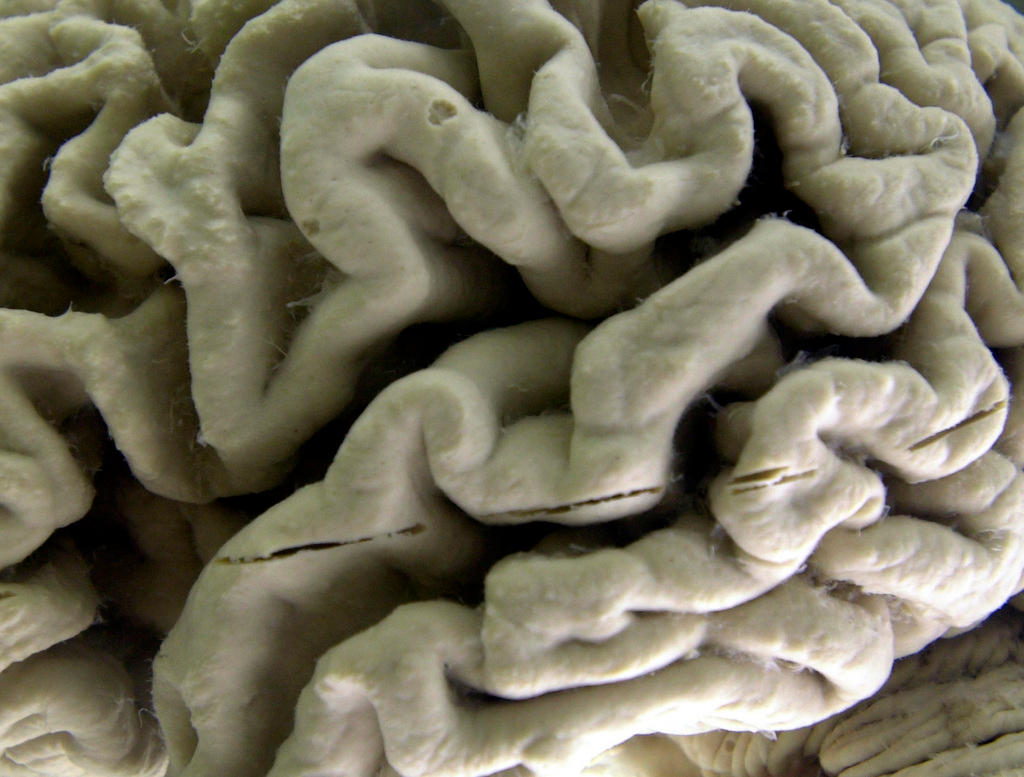
Life experience changes structure of brain

The way people think and act not only affects the way the brain operates, but also its shape, according to researchers at the University of Zurich (UZH). They found that each brain has physical properties as unique as fingerprints that can alter over time.
“Professional musicians, golfers or chess players, for example, have particular characteristics in the regions of the brain which they use the most for their skilled activity,” stated a press releaseExternal link.
Lead researcher and neuropsychology professor Lutz Jäncke made the discovery whilst testing an earlier discovery about the way individual life circumstances affect the anatomy of the brain. Researchers tested the brains of 191 people using magnetic resonance imaging three times over a two-year period.
They found that even events of a short duration can leave their physical mark on the brain. For example, if an arm is kept still for two weeks, the thickness of the brain’s cortex in the areas responsible for controlling the immobilised arm is reduced
“We suspected that those experiences having an effect on the brain interact with the genetic make-up so that over the course of years every person develops a completely individual brain anatomy,” said Jäncke.
“Just 30 years ago we thought that the human brain had few or no individual characteristics,” he added. “With our study we were able to confirm that the structure of people’s brains is very individual.”

In compliance with the JTI standards
More: SWI swissinfo.ch certified by the Journalism Trust Initiative
















![The four-metre-long painting "Sonntag der Bergbauern" [Sunday of the Mountain Farmers, 1923-24/26] had to be removed by a crane from the German Chancellery in Berlin for the exhibition in Bern.](https://www.swissinfo.ch/content/wp-content/uploads/sites/13/2025/12/01_Pressebild_KirchnerxKirchner.jpg?ver=14ffbad8)













You can find an overview of ongoing debates with our journalists here . Please join us!
If you want to start a conversation about a topic raised in this article or want to report factual errors, email us at english@swissinfo.ch.